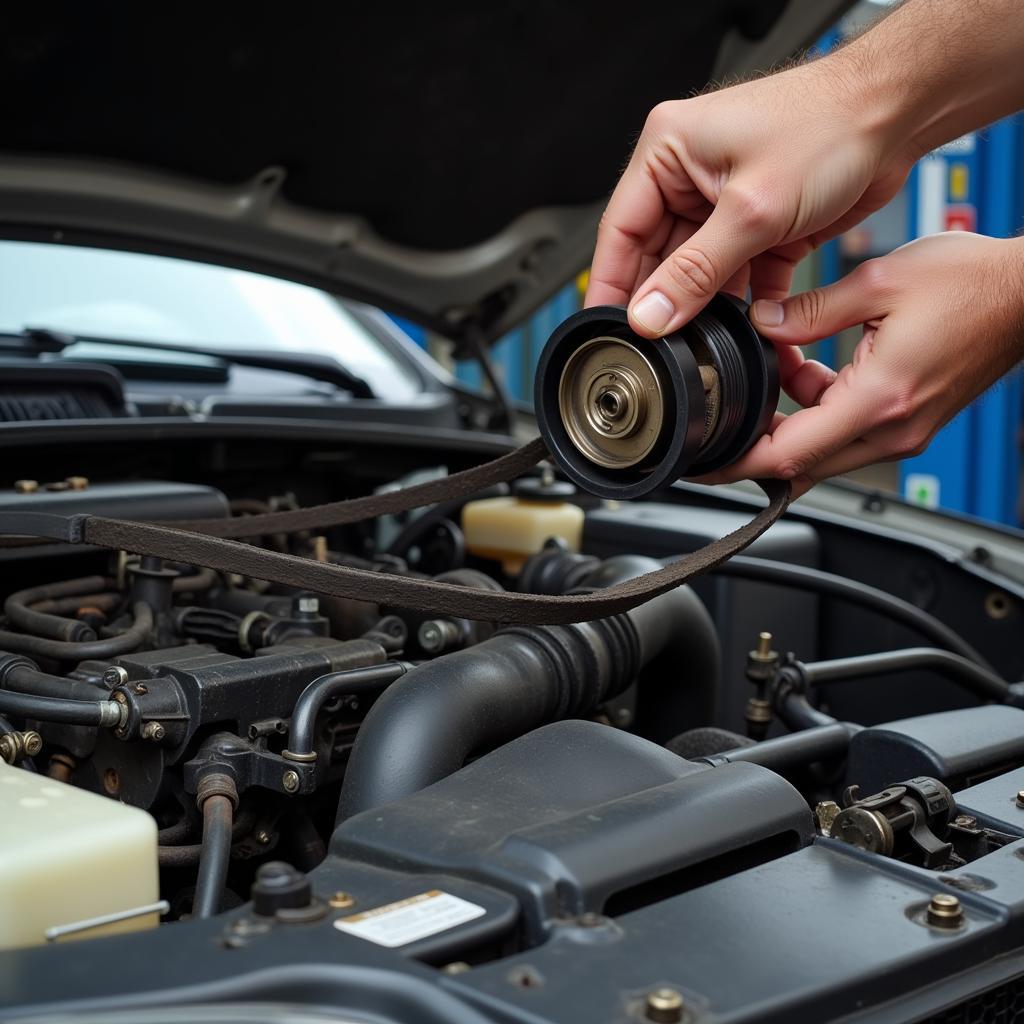Making the decision to fix your old car or trade it in can be a tough one. It’s a balancing act between sentimental value, financial implications, and the ever-present desire for a shiny new ride. This guide will delve into the crucial factors you need to consider when facing this dilemma, empowering you to make the best choice for your individual situation.
Should you pour money into your trusty steed, or is it time to bid farewell and embrace a newer model? The answer isn’t always straightforward. Several factors come into play, including the car’s age, the extent of the repairs needed, your budget, and the current market value of your vehicle. Understanding these factors is key to making an informed decision. Similar to should i fix my car or trade it in, many people struggle with this decision.
Evaluating Your Car’s Condition
Before making any decisions, you need a thorough assessment of your car’s current state. This goes beyond just the obvious problems. Consider the overall wear and tear, the mileage, and the potential for future repairs. A car with high mileage is likely to require more maintenance down the line.
What are the major systems that need attention? Is it just the brakes, or are there more significant issues with the engine or transmission? The cost of repairs can quickly escalate, especially with older vehicles. Knowing the full extent of the damage is crucial.
 Car Engine Inspection for Repair vs. Trade-in Decision
Car Engine Inspection for Repair vs. Trade-in Decision
Calculating the Cost of Repairs
Get multiple quotes from reputable mechanics. This will give you a realistic idea of the potential repair costs. Don’t forget to factor in potential hidden costs, such as diagnostic fees and the price of parts. Sometimes, what seems like a minor issue can snowball into a much larger expense.
How much are you willing to spend on repairs? Establish a budget and stick to it. Be prepared to walk away if the repair costs exceed the car’s value or your predetermined budget. A good rule of thumb is the “50% rule”: if the repair costs exceed 50% of the car’s value, it’s often more sensible to consider trading it in. This aligns with the advice offered in better to just fix car.
Determining Your Car’s Trade-In Value
Research the current market value of your car. Websites like Kelley Blue Book and Edmunds can provide you with a good estimate. Factors influencing trade-in value include the make, model, year, mileage, condition, and optional features. Be realistic about your car’s worth. Don’t expect to get top dollar for a vehicle with significant mechanical issues.
What’s your car worth in the current market? Understanding its trade-in value is crucial in making a well-informed decision.
 Car Trade-in Evaluation – Fix or Trade?
Car Trade-in Evaluation – Fix or Trade?
Weighing the Pros and Cons: Fix Old Car or Trade In
Fixing your old car allows you to avoid the hassle of car shopping and potentially save money in the short term. However, it’s essential to consider the long-term costs of maintaining an older vehicle. Trading in your car, on the other hand, gives you the opportunity to upgrade to a newer, more reliable model with potentially lower running costs and advanced features. However, it comes with the expense of buying a new car. Just as discussed in how to fix a car with a lot of miles, maintaining an older car can be quite demanding.
What are the advantages and disadvantages of each option? Creating a pros and cons list can help you visualize the best course of action.
Considering Your Needs and Budget
Ultimately, the decision to fix your old car or trade it in depends on your individual needs and budget. If you need a reliable car for your daily commute and can’t afford the expense of a new car, repairing your existing vehicle might be the best option. However, if you’re looking for a car with updated features and improved fuel efficiency, trading in might be the more sensible choice. The information found at car price fixing settlement might also be relevant to your situation.
The Final Decision: Fix or Trade?
Choosing between fixing your old car or trading it in requires careful consideration of various factors. By evaluating your car’s condition, calculating repair costs, determining trade-in value, weighing the pros and cons, and aligning your decision with your budget and needs, you can make an informed choice. Remember, there’s no one-size-fits-all answer; the best approach depends on your unique circumstances. Like how to fix dents in cars, fixing an older car might necessitate specialized knowledge or professionals.
In conclusion, the “Fix Old Car Or Trade In” dilemma requires a thorough evaluation of your car’s condition, the cost of repairs, and your budget. Consider your long-term needs and prioritize reliability and affordability.
Contact AutoTipPro at +1 (641) 206-8880 or visit our office at 500 N St Mary’s St, San Antonio, TX 78205, United States for expert advice. We can help you make the best decision for your automotive needs.







Leave a Reply